Teens are hard-wired to take more risks than adults. And this isn’t always a bad thing. Learning to take risks is an important part of growing up – we all need to be able to take a chance, or we’d probably never leave the house! But this attitude can also lead teens into potentially dangerous situations.
Here are some tips for talking to your teen about risky behaviour, and helping them manage the risks they take.
Why do young people take risks?
The thing to remember is that teenagers’ brains aren’t fully developed yet. The part of their brain responsible for thinking things through is still growing, while the part of their brain that deals with emotions and instincts is much more developed, which means it tends to take over.
This means they can’t always think through the consequences of their actions as clearly as most older people can. It also makes them more impulsive, as the emotional part of their brain (which tends to be in control) gets a kick out of doing things ‘just for fun’.
In addition, many teens really want to fit in with their friends and are scared of being rejected by them. This means they can sometimes be persuaded to do things in a group situation they probably wouldn’t do on their own.
The pros and cons of taking risks
Young people need to push themselves out of their comfort zones to try new challenges, like taking up a new sport, joining a club, making new friends or applying for college, university or a job. A willingness to take risks can make them more open to change, which is just as well, as things change a lot at this age. But it can also lead to clashes with you, their parents. While your priority is to keep your child safe, your teen is more concerned with being accepted by their friends, becoming more independent from you and trying new experiences.
And this can lead them to try higher risk experiences, like:
- experimenting with alcohol, vaping, smoking and drugs
- taking risks sexually, like having unprotected sex
- sexting and other risky online behaviour
- skipping school
- breaking the law, for example, by shoplifting, trespassing or vandalism.
If you’re concerned about any of these issues these pages have more information:
If you’re interested in finding out more about how teenagers’ brains work, this page on the DSM Foundation website explains in more detail and includes helpful videos you can watch.
How can I help my teen make more informed decisions?
Let’s face it, we’ve all made decisions in the past that could have had harmful consequences. It’s part of growing up. And as your teen’s brain develops, they’ll learn to weigh up risks more carefully and make more informed decisions.
But in the meantime, there are lots of things you can do to support them through the ups and downs of teenage life and help them avoid making decisions that could affect them in later life.
Tips for supporting teens to make informed decisions
Tip #1: Keep talking
Giving your teenager a lecture on the dangers of alcohol/drugs/sexting is unlikely to get you anywhere! Instead, chat to them regularly about the issues, and let them know they can always talk to you if they have any questions or anything is bothering them. Being honest and keeping lines of communication open means they’re more likely to come to you if something does go wrong.
Our page on talking and listening to your teen has lots more advice on this.
Tip #2: Encourage questions – and help them find the answers
Young people are often curious about things like sex, alcohol and drugs and may have lots of questions. If you can encourage them to come to you with these questions, that’s great! But don’t feel you need to know all the answers – you could maybe look at some reliable websites together, like:
Our page on talking to your teen about sex has more advice to help with conversations about consent and other issues related to sex.
If you don’t talk to them about these tricky subjects, they’ll only look for answers elsewhere, and may end up getting mixed messages from other teens or unreliable sources online.
Tip #3: Look for 'teachable moments'
If your teen tells you about something risky a friend has done, or you see someone in a programme you watch or a celebrity you follow acting in a risky way, you can use this as an opportunity to talk about it together. Why did they make this decision? What could the consequences be? What they could have done differently? Try not to be judgmental – just discuss the facts together.
You could even talk about the mistakes you made when you were young and how you could have avoided them – this might also help when they tell you that you ‘don’t understand’.
Tip #4: Encourage them to be their own person
Young people are sometimes egged on by their friends or peers to do things they wouldn’t otherwise do. If your teen feels confident about themselves and their opinions and values, it’ll be easier for them to resist peer pressure. Our page on helping young people build self-esteem has tips for how you can do this and this article from YoungMinds has helpful suggestions for dealing with peer pressure.
It’s also a good idea to let them rebel in ways that won’t have a long-term impact. Does it matter if their hair’s blue as long as they’re safe?
Tip #5: Get to know their friends
If your teen knows their friends are always welcome in your home, they’re more likely to ask them round, which means you’ll have more of an idea of what they’re getting up to.
Tip #6: Be a good role model
‘Do as I say but not as I do’ never washes with young people, so try and set a good example when it comes to smoking, drinking and other activities. Easier said than done we know, so if this is hard for you, you’ll find help and support for dealing with smoking, alcohol and drug issues here.
Tip #7: Agree on rules and consequences together
Try not to be over-protective and controlling when setting rules – your teen will only resent it. Instead, work together to come up with rules you can both agree on. This will need a bit of give and take on both sides. Our page on setting rules and consequences for teens has more tips on this.
Tip #8: Remember they're not adults yet
Teenagers, particularly girls, often look like grown ups. And sometimes they can behave like grown ups too But it’s important to remember that, however responsible, sensible and sorted they may seem, they’re still young, and their brains haven’t finished developing yet. So although they may act as if they don’t need your advice and support, they really do!
Tip #9: Help them find other ways of coping with stress or boredom
Young people often get drawn into risky behaviour because they’re fed up or bored. They can also see things like smoking and drinking as a way of dealing with stress. So try suggesting other things they can try, like taking up a new hobby, joining a club or practising yoga or mindfulness. Our pages on creative things for teens to do and supporting your teen’s mental health have lots of ideas.
Tip #10: Talk about how you feel
Teenagers don’t always realise how their behaviour affects the people around them. If you’re concerned about their behaviour, try to explain how you feel calmly, using sentences starting with ‘I’ not ‘you’. For example, you could say ‘I worry when you come home late because I’m afraid you might have had an accident’ rather than ‘You’re always home late, it’s so inconsiderate’.
Tip #11: Ask another friend or family member to talk to them
Some teens may find it easier to talk to another family member or trusted adult, rather than their parents. Don’t be offended – it’s all part of growing up and becoming more independent. So if your teen refuses to talk to you about their behaviour, you could try asking a friend or family member to have a chat with them instead.
Tip #12: let them know you're there for them
It’s important that your teen knows that they can always come to you for help, even if they’ve broken the rules. Remind them that you just want to keep them safe.
Some families have a ‘code word’ which their teen can text or message if they’re feeling worried or uncomfortable. The parent or family member who gets the text can then call them back with a ‘family emergency’ and rescue them, no questions asked.
Tip #13: Be there to pick up the pieces
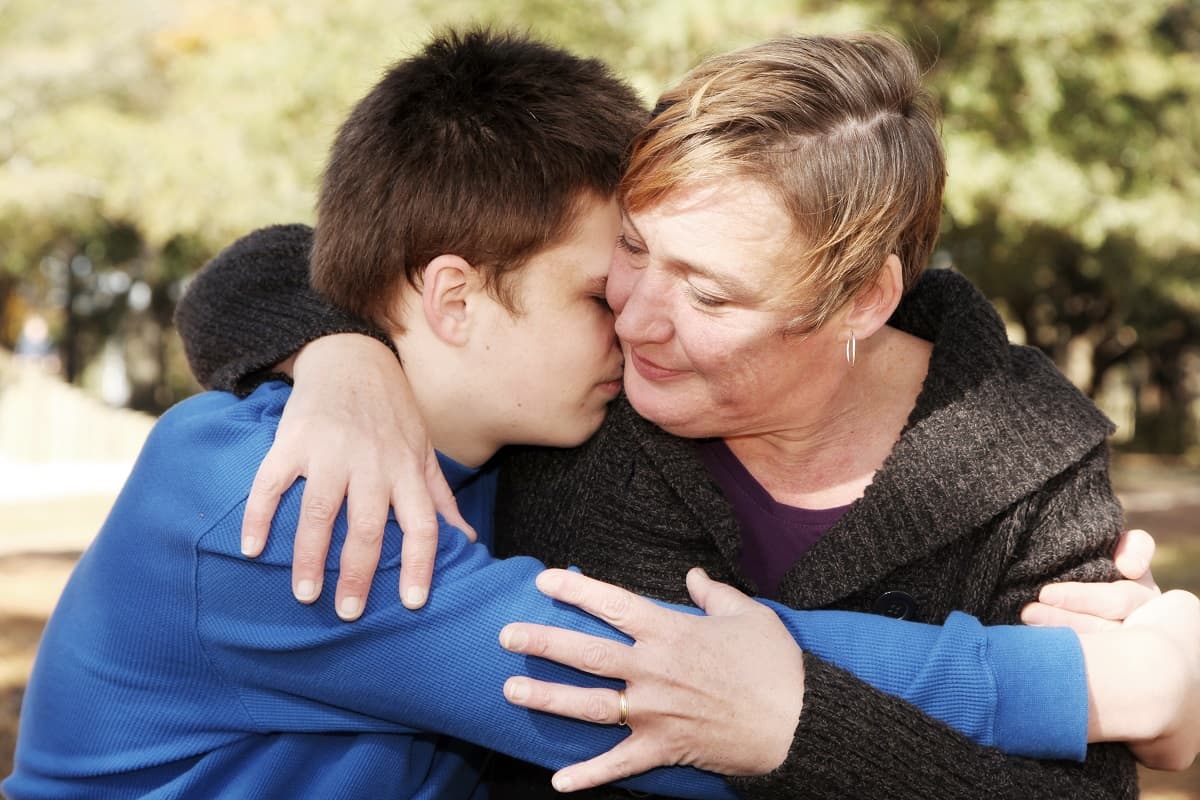
All young people make mistakes – it’s part of the growing up process. So chances are at some point they’ll end up in a situation you didn’t want them to be in – whether that’s being caught vaping at school, coming home drunk, getting into a fight or worse. In these situations, the best thing you can do is be there to support them and help them learn from their mistakes.
Depending on the situation, you may be shocked, angry or upset and your natural reaction may be to yell at them. But try to react calmly. Taking a time out may really help here. Once things have settled down, talk to them about what happened, and what they would do differently next time.
What to do if you're worried
Most young people take risks at some point, so you can expect them to push the boundaries every so often. But if they’re regularly doing dangerous things, like taking drugs or breaking the law, you don’t have to cope with this alone.
Our page on getting support when you’re raising a teen has further information on the support available to you and your teen.
Our page on vaping, smoking, alcohol and drugs also has more information on supporting your child in these situations.
 Activities & Play
Activities & Play Behaviour
Behaviour Childcare
Childcare Development & Growing Up
Development & Growing Up Family, Friends & Relationships
Family, Friends & Relationships Feeding Your Baby
Feeding Your Baby Food & Eating
Food & Eating Health & Safety
Health & Safety Mental Health & Wellbeing
Mental Health & Wellbeing Money & Work
Money & Work Online Behaviour & Safety
Online Behaviour & Safety Pregnancy & First Days
Pregnancy & First Days School & Education
School & Education Sleep
Sleep


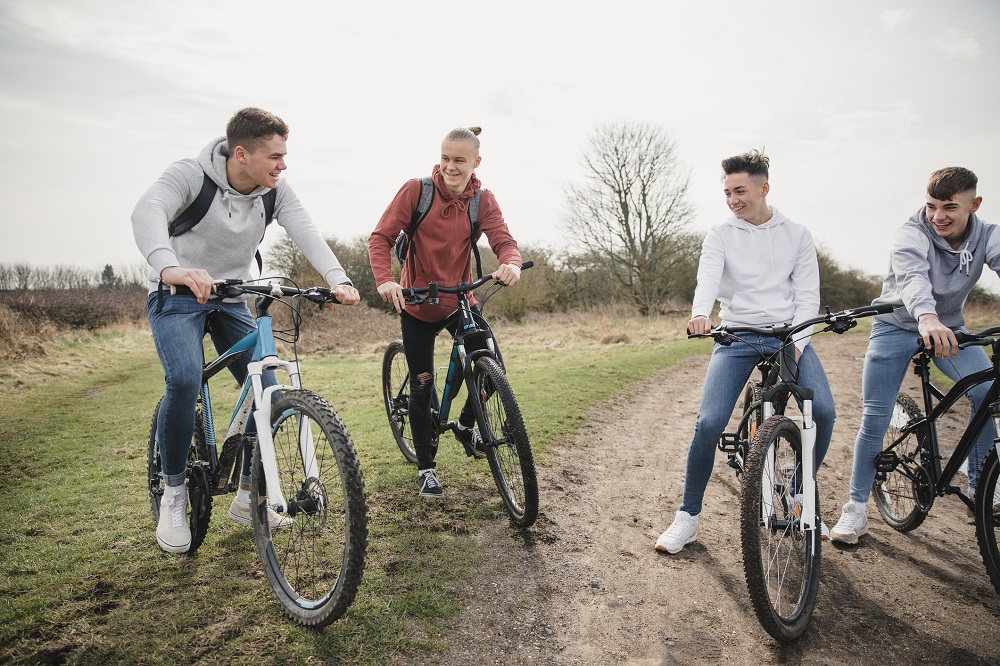
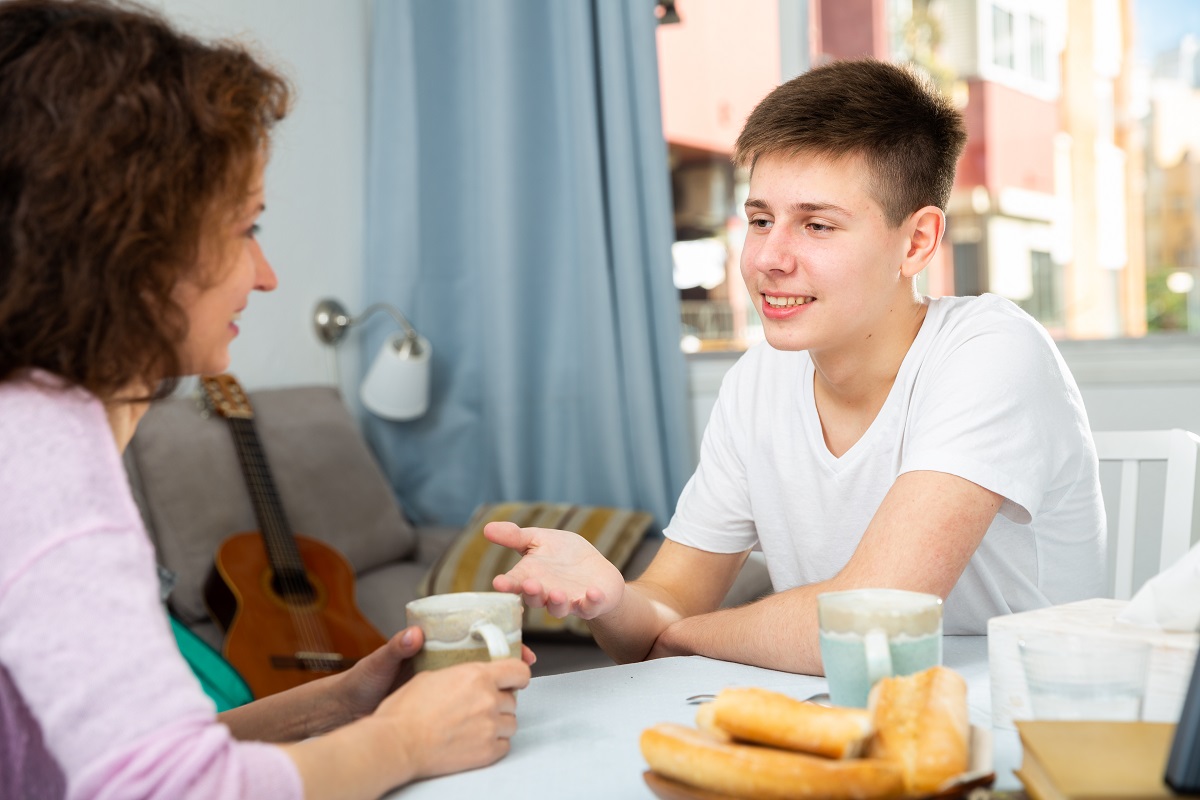

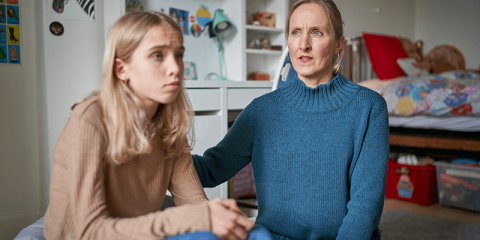
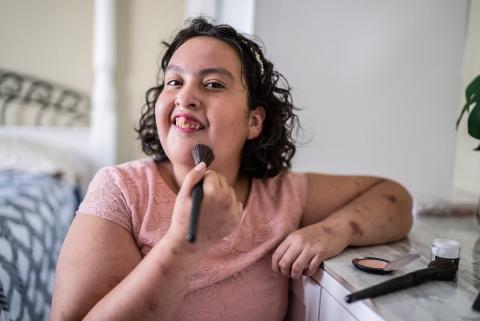




 Family, Friends & Relationships
Family, Friends & Relationships
 Mental Health & Wellbeing
Mental Health & Wellbeing